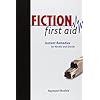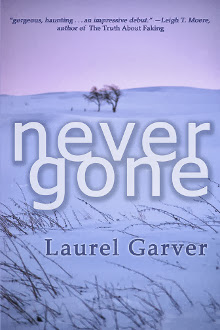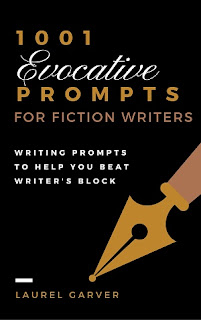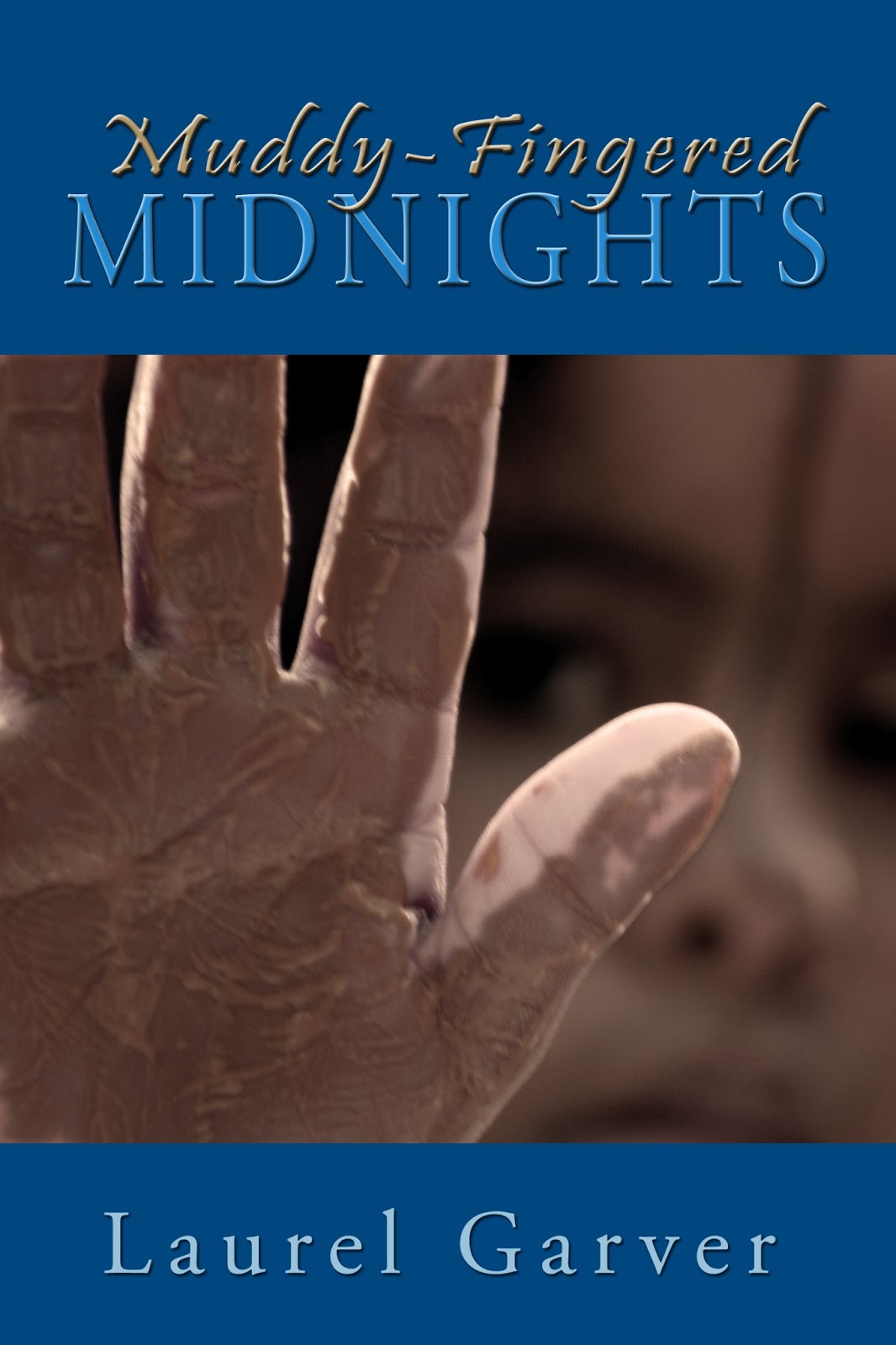I'm a last born, which means I have a bit of a rebellious streak. I always like ideas best if I feel they aren't being forced on me by some authority figure. Who wants some bossy person breathing down your neck all the time?
Well, anyone who wants to get things accomplished. Having a rebellious streak not only gets you into scrapes with teachers, directors, managers, or other authorities, it also can keep you stuck in unproductive patterns.
Accountability to another party--not necessarily a bossy person, mind you--can keep you on track far more than going it alone. Why else would NaNoWriMo be such a popular program? Nothing is stopping you from picking any month you like, say January or July, to generate 50,000 words. What NaNo offers is a vast web of accountability, a mob of positive peer pressure to show up and do what you promised to show up and do.
Sadly, NaNo is only a month long. Some writers are able to maintain the relationships they develop then, others, shamed by failing to meet their goals, disengage.
I don't necessarily think we need more rigid programs to help with accountability, but I do believe all of us can benefit from having a someone or some group/team to whom we report about what we're up to.
Here are some ways to build an accountability structure.
Roseanne Bane's Around the Writer's Block has some great advice about making commitments with yourself regarding process time (creative play) and product time (working on some aspect of research, drafting, revision, or marketing). As you mark your daily progress and see success with building a habit, she notes, the pleasure chemicals in your brain give you added reinforcement. You want to keep meeting goals and recording it. It feels great to succeed.
Others use participate in "What's Up Wednesday" on their blogs to be accountable for progressing with projects (and to help them generate blog content and stay connected).
A friend helped me get back into writing after years away by simply asking that I bring her pages each month when we met for coffee. She didn't care what I wrote, so long as I appeared with pages in hand. After a few meetings, I had the beginnings of a novel.
Perhaps a looser group, such a "Write in" session at a local cafe or library might be all you need. Once again, NaNoWriMo has a forum to join or create such a group.
Mentoring is like a more intimate teacher/student relationship, in which a less experienced person seeks the guidance of a more experience person. No matter where you are in the journey, you can benefit from this sort of relationship either as a mentor or a protege (this is the once widely-used term from someone who is mentored, before consultants invented the goofy word "mentee" that sounds like someone who belongs in an asylum).
A mentor might function more like an accountability partner with some wisdom for you, or more like a teacher/coach who doles out assignments, cheers you on, and gives you constructive feedback about what you're doing well and where you need to improve.
Professional associations like SCBWI for children's writers offer formal mentoring programs. Or you could seek out connections at places like Query Tracker forums, WANA Tribe (the acronym stands for "we are not alone"), Nathan Bransford's forums, or as I mentioned earlier, NaNoWriMo forums.
You might even have some potential mentor material in your own back yard. Connect with a local chapter of your genre's professional association, take a continuing education class, visit book signings. The perfect person to guide you might be closer than you realize.
Do you have accountability in your writing life? What avenues might you try to get it?
Well, anyone who wants to get things accomplished. Having a rebellious streak not only gets you into scrapes with teachers, directors, managers, or other authorities, it also can keep you stuck in unproductive patterns.
| Photo credit: vahiju from morguefile.com |
Sadly, NaNo is only a month long. Some writers are able to maintain the relationships they develop then, others, shamed by failing to meet their goals, disengage.
I don't necessarily think we need more rigid programs to help with accountability, but I do believe all of us can benefit from having a someone or some group/team to whom we report about what we're up to.
Here are some ways to build an accountability structure.
Journal your progress
Sometimes you most need some visual reminder that you are showing up to write. When you hit a moment of self-loathing, you have a document you can hold in your hands to that proves you aren't actually a lazy slob. On days when you feel like you're spinning your wheels, you can see how far you've come and draw strength from it.Roseanne Bane's Around the Writer's Block has some great advice about making commitments with yourself regarding process time (creative play) and product time (working on some aspect of research, drafting, revision, or marketing). As you mark your daily progress and see success with building a habit, she notes, the pleasure chemicals in your brain give you added reinforcement. You want to keep meeting goals and recording it. It feels great to succeed.
Seek social media accountability
I've found it helpful in distracted periods to declare my daily goal on Twitter, then check in again later in the day to report on my progress. Nothing like having your intentions exposed so publicly to make you eager to follow through.Others use participate in "What's Up Wednesday" on their blogs to be accountable for progressing with projects (and to help them generate blog content and stay connected).
Have an accountability partner
A friend helped me get back into writing after years away by simply asking that I bring her pages each month when we met for coffee. She didn't care what I wrote, so long as I appeared with pages in hand. After a few meetings, I had the beginnings of a novel.Participate in a writing group
A face-to-face group can be a great place to build accountability, either for you to produce work or to be developing your craft in some way. I participate in a group to which I bring up to two chapters per month for critique. Others in the group prefer to distribute whole drafts outside of meeting times, using meetings to simply report how they are progressing, and offer fellow writers critiques. The group meetings are often boisterous as we get excited about each other's works in progress and toss around creative ideas to overcome plot holes or other snags in the process.Perhaps a looser group, such a "Write in" session at a local cafe or library might be all you need. Once again, NaNoWriMo has a forum to join or create such a group.
Find a mentor
Mentoring is like a more intimate teacher/student relationship, in which a less experienced person seeks the guidance of a more experience person. No matter where you are in the journey, you can benefit from this sort of relationship either as a mentor or a protege (this is the once widely-used term from someone who is mentored, before consultants invented the goofy word "mentee" that sounds like someone who belongs in an asylum).A mentor might function more like an accountability partner with some wisdom for you, or more like a teacher/coach who doles out assignments, cheers you on, and gives you constructive feedback about what you're doing well and where you need to improve.
Professional associations like SCBWI for children's writers offer formal mentoring programs. Or you could seek out connections at places like Query Tracker forums, WANA Tribe (the acronym stands for "we are not alone"), Nathan Bransford's forums, or as I mentioned earlier, NaNoWriMo forums.
You might even have some potential mentor material in your own back yard. Connect with a local chapter of your genre's professional association, take a continuing education class, visit book signings. The perfect person to guide you might be closer than you realize.
Do you have accountability in your writing life? What avenues might you try to get it?












